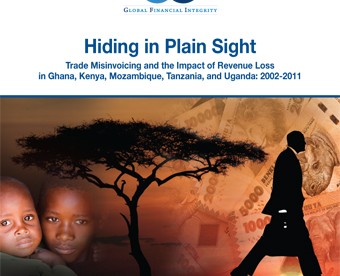GFI and ACODE, in their report “Corporate Transparency: A guide for beneficial ownership laws in Uganda”, advocate for the adoption of streamlined procedures, which are essential for economies as they implement new transparency policies.

By Brian Monroe, VP – Content Development, Association of Certified Financial Crime Specialists This piece was originally published on July 6th, 2020 by the Association of Certified Financial Crime Specialists and is reposted with permission. When it...
By Francis Kairu, June 9, 2020

With a new head of prosecutions, Uganda has the chance to crack down on organized criminal networks that have made Uganda a safe haven for illicit activity. On April 24, 2020, Ugandan President Museveni appointed Hon. Justice...

We have a big year planned for 2020. From advocacy and research, to panel participation and other high-level engagements, check out some of the projects we’ll be working on this year: Advocacy In 2019, we began advocacy...

Photos from the launch events for our May 2014 report, “Hiding in Plain Sight: Trade Misinvoicing and the Impact of Revenue Loss in Ghana, Kenya, Mozambique, Tanzania, and Uganda: 2002-2011,” which was funded by the Danish Ministry of Foreign Affairs.
These photos were taken from the launch events in Copenhagen, Denmark, and in Accra, Ghana.
While the precise magnitude and consequences of illicit financial flows in African countries — and throughout the developing world — deserve further analysis, it is clear that such flows are wreaking havoc on the continent. Any sustainable approach to global development has to curtail illicit flows and the mechanisms facilitating them. Only then will we be able to mobilize domestic resources for long-term development.

Fraudulent Trade Transactions Channeled at Least US$60.8 Billion Illegally in or out of 5 African Countries from 2002-2011
Tax Loss from Trade Misinvoicing Potentially at 12.7% of Uganda’s Total Government Revenue, followed by Ghana (11.0%), Mozambique (10.4%), Kenya (8.3%), & Tanzania (7.4%)
COPENHAGEN, Denmark / WASHINGTON, DC – The fraudulent misinvoicing of trade is hampering economic growth and potentially resulting in billions of U.S. dollars in lost tax revenue in Ghana, Kenya, Mozambique, Tanzania, and Uganda, according to a new report published Monday by Global Financial Integrity (GFI), a Washington DC-based research and advocacy organization. The study—funded by the Ministry of Foreign Affairs of Denmark—finds that the over- and under-invoicing of trade transactions facilitated at least US$60.8 billion in illicit financial flows into or out of the five African countries between 2002 and 2011.





